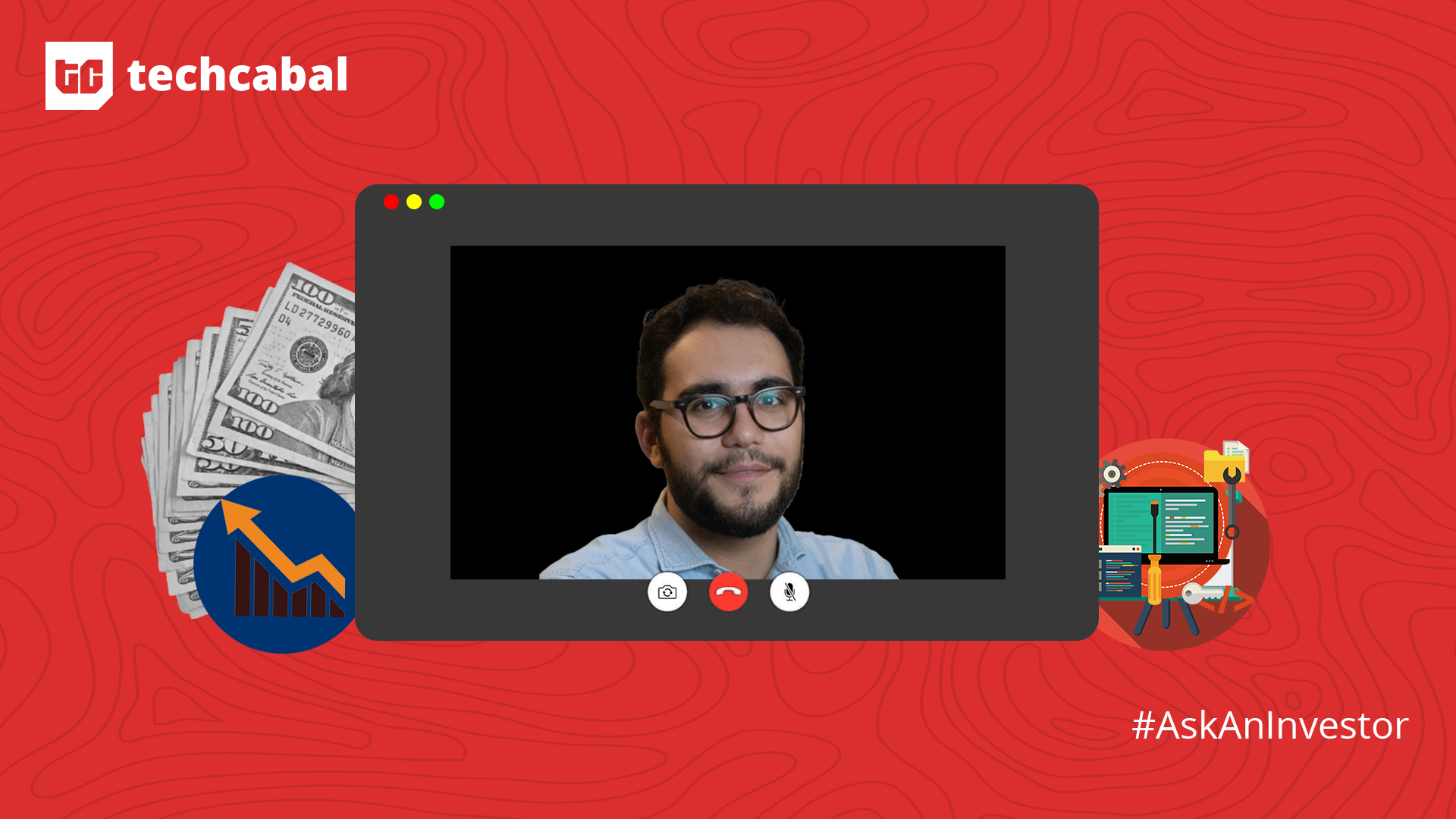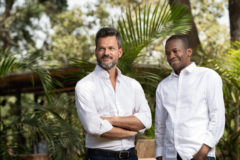As a girl, Fadilah Tchoumba was certain that she was going to study economics in university, but upon gaining admission into the university she decided to major in economics and minor in philosophy. The decision to minor in philosophy was unplanned but she ended up loving it.
“With philosophy as a foundation, I found out that I could connect the dots with different fields such as economics, statistics, architecture and arts. It helps you to understand why things are the way they are and how best they can be improved or changed,” Tchoumba, told TechCabal.
This inquisitive mindset she had developed came in handy when Tchoumba undertook a master’s degree programme in development studies at the London School of Economics in 2013. She was able to compare the established advanced economies to those on the African continent, learning about their fundamental drivers and differing trajectories. “I know Africa’s potential has always been obvious. However, at the time, it was a bit of a revelation to me to see the data and the studies up close! There is so much we have, and there are so many tools we can use to grow at pace!” It was then Tchoumba became determined to set her sights on contributing to the economic growth of the African continent.
Over the past decade, that’s exactly what Tchoumba has done, through advising and investing in companies. Tchoumba is secretary-general at the African Business Angel Network (ABAN), which has 60 member networks with over 1000 early-stage investors, in over 40 African countries and the diaspora. She’s also managing partner at Amzil, a management consulting firm that helps small and medium enterprises (SMEs) in West Africa.
Daniel Adeyemi: Let’s go back to the beginning. How did you start?
Fadilah Tchoumba: I got involved in tomato farming; it was a disaster! I thought I could use my paper economics to plug a clear gap in supply in the market, however, my lectures and exams hadn’t prepared me for the day-to-day challenges of farming in Africa, such as expensive utilities, volatile weather patterns, sourcing quality seeds; and that was before you had to think about moving the product from the farm to the market. I got an advanced diploma in African business essentials with that farm!
After that, I went into microfinance. The whole idea back then was whether we can make capital available to those that need capital at an affordable rate. But that was also a struggle simply because, back then, microfinance and the financial sector were not as tech-driven as now and we had to deploy capital, manually incurring more costs.
For example, if you have to give a loan to about 200 market women, you need to have enough quality personnel to give out and manage those loans. As you increase the number of customers, you’ll have to increase the number of people available to guide them through the whole process and also issue those loans.
As soon as I left microfinance, I started working for a firm that was focused on trade finance, supporting traders with fast-moving goods, so that they can scale up their businesses as fast as possible. We provided working capital, equipment finance and other necessary finance.
However, there were a lot of control issues and many companies didn’t really understand what it means to attract capital or what it means to maintain relationships with those that provide capital, and what it means to scale up your businesses based on the capital that you have received.
This experience led me to start Amzil, a consulting firm that works with SMEs, in 2017.
DA: Let’s talk about Amzil
FT: I co-founded Amzil to support SMEs on the continent in building investable companies.
When we talk about investable companies, from my perspective, it’s not that the founders lack the ability to run companies, but they aren’t well-positioned to communicate with people that can entrust them with capital.
For example, when you see a company with a turnover of about $200,000 in a month, it’s an exciting proposition. If it doesn’t have clear record keeping and financials there’s no clear track record of what the company actually does and how it has performed. These are fundamental elements needed when talking to banks, VCs and other financial institutions.
When we started Amzil, we had to learn about the SME landscape first because traders didn’t see value in the services we offer. What they mostly understand is to buy and sell products at a profit margin—they don’t get too involved in forward planning. So, as an investor, when you ask many SMEs for their projections for the next five years, for example, they usually don’t have them as it feels irrelevant to running their day-to-day operations.
It’s understandable. However, rather than seeking to persuade everyone, we currently now focus our services on those entrepreneurs looking to take the next step to grow their businesses and are open to doing things a bit differently.
DA: Sounds like you help SMEs through Amzil and startups through your work at ABAN
FT: Yes, and I do so because SMEs and startups play different roles in the African economy. Startups are businesses that are able to create value at scale and they are able to solve issues that SMEs might not solve despite the overwhelming numbers of SMEs that we have on the continent.
SMEs will always exist serving a different set of customers compared to startups. SMEs will always have a specific nature, in terms of growth; they will only grow gradually. They’re important in a country because they are a source of job creation and tax to the government.
For example, in Nigeria today, the SME sector makes up about 80% of the economy. Within that 80%, there are many SMEs that provide financial technology services and have done so for years. However, the arrival of Flutterwave in less than seven years has been able to provide value at a scale that all the SMEs within the 80% have not been able to in the past 15 years.
As far as I’m concerned, when it comes to value creation on the continent, I’ll put my bet on startups.
By their own nature, SMEs are built to grow, but scaling is a problem for them and you have to accept that whether you are a financier or a consultant, the question will be, at what scale can they grow? And can they become sustainable? What value are they creating?
That’s why for SMEs to achieve sustainable growth over the long term, they require a lot more organisation in terms of operations, finance, accounting and even human resources.
DA: What led you to early-stage investing?
FT: I went back to enabling early-stage investing through my role at ABAN because it contributes to the development of the continent.
Early-stage investing has always existed; the only difference is that the terms have changed. Historically speaking, if you look at how the Hausa or Igbo have operated, they’ve been starting and growing new ventures by supporting new entrepreneurs within the ecosystem.
For me, early-stage investing is like a catalyst for economic growth on the continent. It provides the first seeds that allow companies to blossom.
This seed is not just in money but also in terms of network and mentorship that’s provided by investors to nurture companies. For founders who are looking to attract funding, the most important thing they should focus on is providing value. If they do so, people will come to invest. It’s like someone saying, I’ve been able to touch one million people in a short time and the return on investment is more than 20%. Anybody who has interest and funds will invest.
In deciding on what type of businesses to focus on, I ask a few questions: Who are the value creators on this continent? What kind of business models will create value at scale? What are the important issues that we’re facing? For me, these issues are around the lack of access to water, food, electricity, and housing. These four sectors are very critical for our well-being on the continent, and for the economy to actually grow.
With the rise of technology, there’s a rise of new business models that are emerging on the continent.
I’m also thinking more about inclusion. How do we transfer the wealth of Lagos to a remote area? How can we make sure that somebody who is based in a remote area in Nigeria can enjoy the same privilege of having internet access or access to financial services as if they were living in Lagos?
While SMEs go to banks for financing, startups need local angel investors. My belief is that early-stage investing has to come from inside; it has to be homegrown. If it’s not driven from the inside, outsiders can’t participate, and that’s why early-stage investing has become important to me.
DA: You’ve worked with many SMEs. Can you share some success stories?
FT: Amzil was contacted at the beginning of COVID by a Ghanaian automobile company that made between $1–2 million turnover per annum.
The CEO had said that he’d like us to work together because he wants to raise money. After talking a bit more, I pointed out that that the key to unlocking capital was ensuring his company was well set up to attract investment. Without addressing some key areas in the operation of the business that are of particular interest to investors it would continue to be very difficult for him to try and convince financiers to back the company, even though they had an impressive historical turnover.
As I learned more about his business, I advised him to make some adjustments in his mode of operation and I nudged him to become more transparent with his businesses.
We worked together for six months restructuring functional areas and helping turn it around. One of the major issues the business faced was that they were holding on to products that weren’t generating revenue.
As soon as we finished restructuring, they were able to unlock capital from a different partner. And one day, the CEO told me laughing, “Fadilah, you were right. Our problem wasn’t capital. Our real biggest problem was the way the company was structured.”
We also worked with a microfinance institution in Cameroon that came with the same request that they needed capital. We told them the same thing: you don’t need more money, what you need is to fix your problem internally, and capital will come to you.
In this case, we started working with them but they wanted a quick fix, so they ended up declaring bankruptcy.
The biggest lesson is that business models are very objective. It doesn’t matter what type of business you’re doing; if you’re creating value and generating traction it is very clear. Numbers don’t lie.
My experience in doing trade finance helped me to pinpoint that the problem has never really been a lack of capital; there’s plenty of capital waiting to be allocated to viable businesses. Once a business is a business is creating value and there are customers who are willing to pay for your product or services, you’ll always find somebody who will be interested in the kind of revenue and value that you create.





















